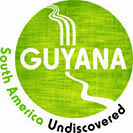Not widely known among Caribbean Community (CARICOM) countries as a regional tourism haven Guyana, through its local Tourism Authority, has been seeking to position itself to draw greater international attention to what it has to offer once the menace of the Covid-19 pandemic recedes completely into the background.
Accordingly, the Guyana Tourism Authority’s (GTA’s) June 4 update on activity in the sector, seen by the Stabroek Business, asserts that local tourism is busy responding to the reality that “destination health and sanitation is the new norm and standard by which travel decisions are made.”
The update offers details of the steps which the Authority, working in collaboration with the National COVID-19 Task Force, has taken to ensure that the country’s tourism and hospitality sector not only remains “safely open” but also maintains its “top spot” as a sustainable tourism destination.
The GTA’s June 4 update on just what it is doing to provide an enhanced measure of visitor assurance tags “Hygiene and Sanitation” as a critical priority. Accordingly, the GTA says that of the 616 trained in various “tourism-related capacity-building programmes” this year, 314 have received training in First Aid and CPR-related disciplines. A further 128 persons received training in Delivering Quality Service while 101 persons benefitted from training as Boat Captains. A further 33 persons were exposed to culinary training during the period under review while 22 participants underwent training in Restaurant and Bar Inspection training. The GTA also provided training for lesser numbers of persons in the area of Adult Learning.
According to the June 4 brief the training programmes targeted the various communities directly involved in service-provision to the sector including accommodation establishments and guides and tour operators “as the country prepares to actively receive visitors.”
The GTA says that “training and capacity-building are important components in the process of strengthening the resilience and improving the product offering of the tourism industry,” adding that its training programmes target “every tourism circuit and region in which there are businesses involved in tourism.”
In outlining its June training schedule the GTA says that Bartica and the Essequibo Coast had been targeted for training in ‘Hygiene and Sanitation Protocols’ while the Essequibo Coast had been targeted for training in ‘Delivering Quality Service.’
Meanwhile the GTA says that during the month of June it had identified six communities, Phillipai, Warapoka, St. Cuthbert’s Mission, Karasabai and Santa Aratack Mission which it says “will continue to benefit from outreaches… that focus on community governance, tourism product readiness and action planning Those programmes, it says, will also focus on “reinforcing the importance of implementing hygiene and sanitation protocols within the community.”
And as part of its preparation for tourist arrivals the GTA says that it has also inspected and licensed twenty seven (27) service providers – eight (8) Tour Guides, twelve (12) tour operators and seven (7) tourism accommodation establishments and resorts/lodges for this year, so far.
The GTA says, meanwhile, that helping businesses that had been closed to “get back in operation in a safe way” is its “top priority.” This, it says, “is one of the ways to get people back to their jobs and the stream of revenue to the businesses, thus moving the recovery process forward.
Under the current gazetted emergency safety measures, tourism businesses (interior lodges and resorts, and tour companies) are permitted to operate once conditional approval is secured from the GTA. Additionally, restaurants and bars are permitted to operate at a 40% capacity.
The GTA as part of its monitoring role requires businesses to develop written Standard Operating Procedures (SOPs) and conducts inspections both randomly and at the request of businesses that have already made the adjustments and are ready to reopen.





